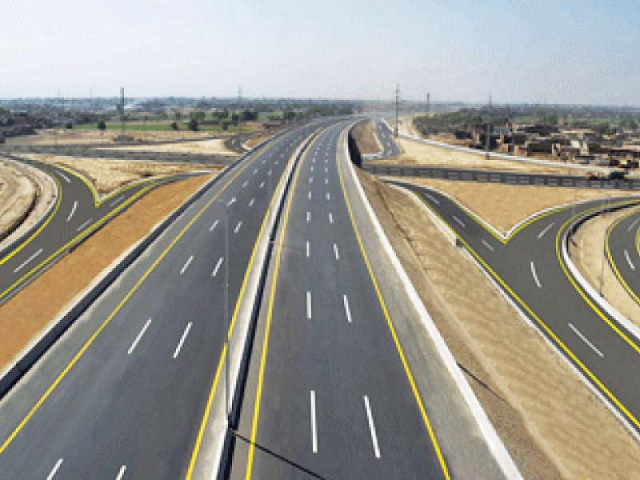
It argued that incentives such as import duty and income tax exemptions were lowering the cost of doing business for Chinese firms, discouraging local players and hurting Pakistan’s economy.
The local constructors do not receive any such exemptions and therefore, this leads to discrimination between the local and the Chinese construction firms, read a CCP report on ‘Competition Assessment of Road Construction Sector in Pakistan’.
NHA told to explain lack of safety walls on motorway
The report added that to maintain a level playing field, local constructors should be given relief on import duties and taxation as well in order to enable them to compete in road projects.
“Local bidders should be given a margin of preference of 6-7% for the road construction sector to assist them in becoming competitive. Under The World Bank Standard Bid Evaluation Guide-Procurement of Goods and Works, domestic preference is applicable in determination of awards to the domestic firms who are non-exempt importers.”
The CCP conducted the study in order to evaluate the road construction and infrastructure sector in Pakistan, critically evaluating the regulatory framework as well as market players and the level of competition in the sector. Subsequently, the aim was to assess the likelihood of any anticompetitive practices such as abuse of dominance, cartelisation or bid rigging in the sector as pointed out by some local economists.
NHA to establish 14 emergency response centres
According to the CCP, it is also pertinent to establish whether there is a level playing field for all players in the road construction sector, regardless of their status being state-owned or privately-owned.
Projects floated by the NHA for construction of motorways and highways, under the China-Pakistan Economic Corridor (CPEC), require constructors to have experience in past projects amounting to between Rs8-9 billion.
However, local constructors, excluding state-owned enterprises, often do not have experience in executing projects worth more than Rs6 billion in their portfolio, since this was the average size of most projects in the pre-CPEC period. This, as a consequence, limits local firms from bidding in such high valued projects. In order to ensure greater participation projects may be broken down into optimum size packages.
“There are some examples of breaking down large-scale road construction projects such as the Rawalpindi-Islamabad Metro Bus Project and the under construction Lahore-Karachi motorway M-5 various sections of which have been divided into packages,” the report added.
This will enable smaller constructors to compete as well, rather than restricting participation and allowing only few large constructors to participate.
However, there is also possibility that dividing a project into very small packages could facilitate collusion between firms (ie by dividing the package each firm would bid for). Therefore, the implementing agency needs to ensure an optimum size for packages.
Meanwhile, renowned economist Kaiser Bengali said that he has come to know that businesses have faced stiff resistance while dealing with Chinese companies coming to Pakistan post-CPEC launch.
“I have been told by many business houses here that Chinese companies, gearing up to come here, have a ‘take it or leave it’ attitude and they are not prepared to bargain,” Bengali told The Express Tribune.
Alternative CPEC route: NHA plans 216km Gilgit-Shandur road
Citing an example, he said that after floating tenders and after winning them, Chinese companies bargain further with the government by taking concessions and exemptions, which is a bad practice.
“If the exemptions were incorporated when the tender was floated, others would have also proposed similar or even better deals for the project. The government is reported to have gone out of the way for the Chinese,” Bengali added.
He further said that the provision for making it mandatory for Chinese companies or individuals to have a local partner for venturing into Pakistan, like it happens in Middle East, will not bear any results.
“Even if it is made mandatory that Chinese companies or individuals have a local partner, it would also be of no use. People who have no experience of doing business but have good links within the government ranks will become local or resident partners,” he said.
Published in The Express Tribune, July 14th, 2018.
Like Business on Facebook, follow @TribuneBiz on Twitter to stay informed and join in the conversation.



































1713853507-0/MalalaHilary-(2)1713853507-0-270x192.webp)








COMMENTS
Comments are moderated and generally will be posted if they are on-topic and not abusive.
For more information, please see our Comments FAQ